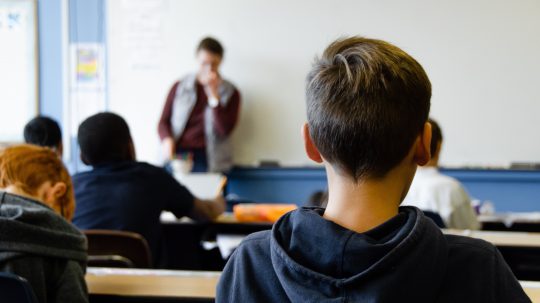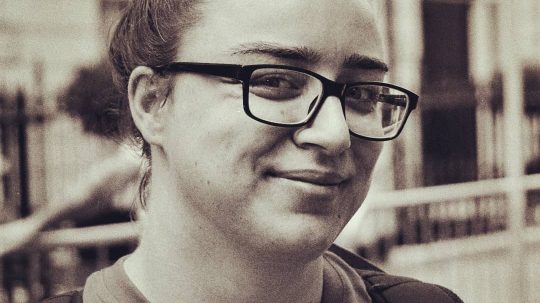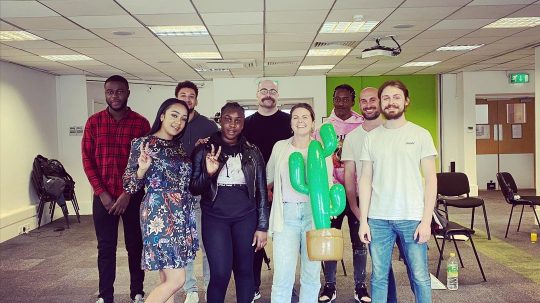
Aaron: I'm here today with the Children's Commissioner for England. Anne Longfield. How are you, Anne?
Anne Longfield: Hi. Thank you. You good?
Aaron: Yeah, I'm very well, thank you.
Aaron: What do you think is the biggest sort of misconception about school exclusions? And could you set the record straight for us?
Anne Longfield: So I think that there is a misconception that these are children who can't be helped. And sometimes people do say to me about children, you know, they're too complicated to help. They can't be helped. And I just won't accept that. So I think, you know, for all those schools who do amazing things, they don't have to look at exclusions as a major aspect of what they do. They look at ways they can support children, they can celebrate their diversity, and then can help all children learn in a way that is good for them. And that I think, would make a major change in how we all looked at the whole thing about children's behaviour in school and those that are currently being excluded.
Aaron: Earlier this year, you said that the number of children being permanently excluded was unacceptably high. Could you explain why that rate is so high from your perspective?
Anne Longfield: Well, I know from what children have told me how devastating it is when they're excluded from school, and there are children who might be excluded several times. And we also know when some of those children are excluded a number of times then they don't get back into school. They're permanently outside the school system, and much more vulnerable to falling into poor mental health, or, you know, in very bad scenarios being targeted and exploited by those who want to bring them into gangs and county lines and things like that. So knowing that what I would like to see is that there's a set of interventions if a child is either at risk of being excluded the first time or indeed is excluded the first time to prevent a second time happening. I would say for schools to be able to provide that support for children with special education needs and also provide mental health support because we know that both of those factors will have a real impact on the well-being of the child, but also their behaviour in school.
Aaron: So if you could introduce, repeal, amend a law or a policy in England to improve life for children who have been excluded, or are at risk of exclusion, what would you do and why?
Anne Longfield: Well, I think I would want schools to be much more inclusive in their support for children. I'd like all schools to be able to provide the support for special educational needs, the law actually is there for that, but often schools don't feel they have the resources to be able to do that. I'd also like there to be a much greater intervention around children who are displaying real signs of, you know, unease, obviously, if a child's been excluded from school, things aren't going well. I'd like there to be much more of an emphasis on helping that child to find a way to continue within the school, there's been a big focus about alternative provision. And I'd like that rather than being a separate entity that, you know, shifts children out, not to come back, to have again what I've heard about in some areas, which should be teams that can actually go into schools, and work with children who are at risk of exclusion to keep them in school, rather than having them leave school, and not get back.
Aaron: Children have a right to express their views, be listened to and be taken seriously. How do you think adults in England, be it teachers, parents or the media, how well do you think they fare in respecting this right?
Anne Longfield: I think we're getting better. It's my job to speak up for children. I mean, I don't want to speak on their behalf because children need to have that voice themselves, but actually, I'm kind of the eyes and ears of children in the system. I'm independent of government, but I can see what's going on. It's my job to understand children's experiences and views. And also make sure that those that are making decisions about their lives. Understand that too, and take that into account. I think it needs to be something which we set up the kind of mechanisms for, and that can be in school, it can be in local areas. There are some great examples of youth mayors for instance, in some areas that have been established over time. The kind of nub of all this, I think is that, yes, of course, children, we want children to have their voice. But all of the decisions that affect children's lives. And the services for children are so much better if you involve children, because they're the experts in living their lives, which is why we really want to ensure that they're actually built in, in terms of their views and experiences from the start.



